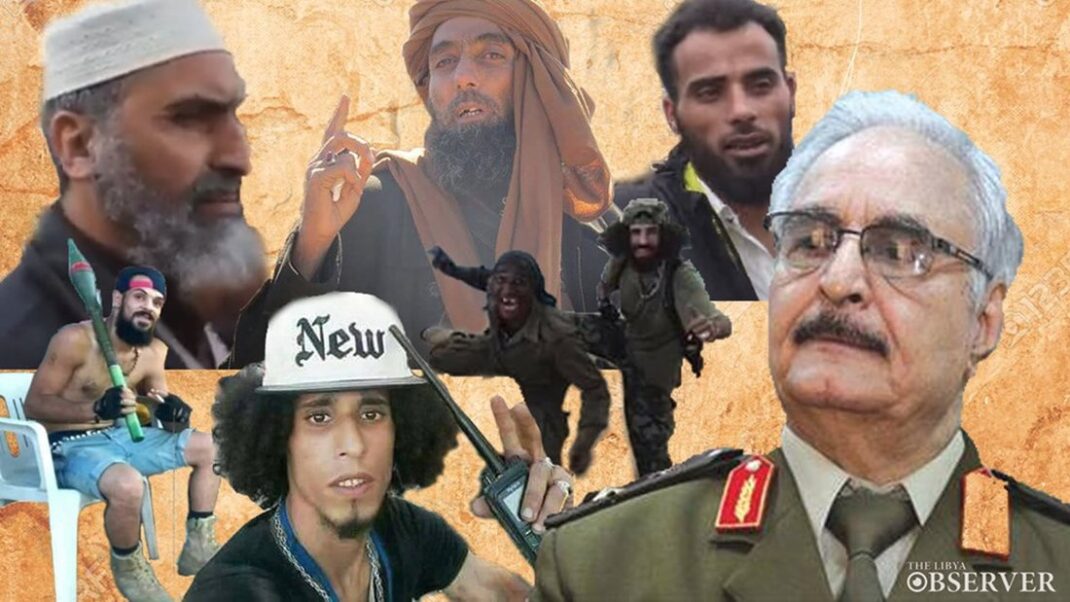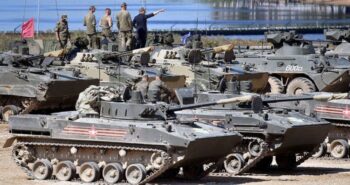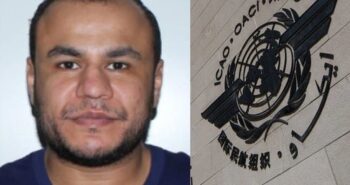By Elisabeth R. Myers
 With the LNA in retreat from Tripoli, but foreign powers still backing an escalation in the conflict, what next for Libya?
With the LNA in retreat from Tripoli, but foreign powers still backing an escalation in the conflict, what next for Libya?
The UN Secretary-General Antonio Guterres has recently expressed concern about the ongoing conflict in Libya between the UN-recognized Government of National Accord (GNA) and the Libyan National Army (LNA) led by renegade warlord and former military general Khalifa Haftar who served under Muammar Ghaddafi.
Guterres stated on July 8 that the interference of outside forces in the conflict has become “unprecedented.”
Libya has been in conflict since the toppling of Ghaddafi in 2011 that left battling tribes and militias vying to fill the void in power.
Seeing an opportunity, after a 20-year exile in the United States, Haftar returned to Libya in 2011, amassing support of militias in the east of the country and positioning himself ostensibly to be to Libya what Al Sisi became to Egypt, announcing himself leader of the LNA in 2014.
Both warring parties are supported by outside countries. On the side of the GNA are the UN, Italy, Qatar, and Turkey.
Weighing in on Haftar’s side are the UAE, Saudi Arabia, Egypt, France, and Russia. Haftar enjoyed the support of a number of foreign nations before he began his major offensive on Libya’s capital Tripoli on April 4, 2019, just days before a UN-brokered peace conference was scheduled.
During that assault, with the support of the LNA units, armed groups from within Libya, and thousands of mercenaries from Syria and other African countries, the UAE, and Russia, Haftar took on the GNA and its affiliated armed groups from western Libya.
The 2020 World Report on Libya of Human Rights Watch (HRW) details a litany of human rights abuses, mainly by Haftar’s LNA and supporting forces.
Civilian homes and infrastructure bore the brunt of many of Haftar’s attacks. As of November 2019, his forces had killed more than 200 civilians, injured more than 300, and displaced more than 300,000 people who were forced to flee their homes because of the violence.
Haftar’s forces conducted air strikes in October 2019 that have resulted in war crimes and more civilian casualties. His forces launched airstrikes against a migrant detention center and at least 21 health facilities.
On October 6, 2019, the LNA struck a riding club in Tripoli, injuring six children and killing several horses. The UN investigated, concluding that it was not a legitimate target as no military assets or military infrastructure were at the site.
On October 14, 2019, Haftar’s forces killed three young girls in their home, wounding their mother and sister, in a supposed attack on a military compound.
There were 37 attacks on medical facilities during the Tripoli assault, killing 11 health workers and injuring 33 health personnel and patients, according to the WHO.
Despite a 2011 UN Security Council embargo on selling arms to Libyan forces, subsequently renewed in June 2019, Egypt has reportedly supplied the LNA with military equipment, and the UAE purportedly has provided the LNA with armed drones that have been used to strike positions of GNA-allied groups in Tripoli and Misrata.
France has given political support to Haftar, while Russia has provided hundreds of mercenaries, including snipers, through a Kremlin-linked private group, according to news reports.
On the other side, the GNA has received armed drones from Turkey and has used them to strike LNA positions and armored vehicles.
HRW claims that armed groups, some of which are affiliated with the LNA, have carried out extrajudicial executions and abducted, tortured, and disappeared people.
More than a year after the Tripoli offensive, GNA forces succeeded in repelling Haftar and the LNA. In May, however, after several GNA victories, video footage surfaced of fighters allied with the LNA committing egregious human rights abuses.
A number of videos posted on social media show LNA fighters torturing prisoners, desecrating bodies, and harassing civilians during the assault on Tripoli.
In one of the videos, the body of a captured GNA combatant is desecrated. Meanwhile, LNA fighters warn that anyone fighting on the side of the GNA will be accorded the same treatment.
HRW called upon the United Nations Human Rights Council to establish an immediate investigation and fact-finding mission during its session in June to investigate these and other atrocities.
While retreating from the capital of Tripoli, the LNA set landmines indiscriminately in residential neighborhoods, that have resulted in the deaths of dozens of civilians returning to their homes.
Eight mass graves are also reported to have been discovered by GNA forces which retook Tarhouna, an area in the west previously under Haftar’s control.
Until recently, the UN and world leaders have largely stood by silently. Now the UN Secretary-General is suggesting that the conflict is entering a new phase, involving the “delivery of sophisticated equipment and [an increased] number of mercenaries involved in the fighting.”
There are “roughly 10,000 Syrian mercenaries operating in Libya, approximately twice as many as there were six months ago,” according to the UAE’s Minister for Foreign Affairs, Anwar Gargash.
Egypt has warned that it might send in its army in the event of a Turkish-backed effort to take Sirte, a city halfway between Tripoli in the west and Benghazi in the east, and some 600 miles from the Egyptian border.
Guterres has expressed concern about the “alarming military build-up around the city, and the high level of direct foreign interference in the conflict in violation of the UN arms embargo, UNSC resolutions, and commitments made by Member States in Berlin.”
He has appealed to both Prime Minister Faiez Mustafa Serraj and Haftar to agree to a ceasefire and start peace talks.
The UN documented at least 102 civilian deaths and 254 civilian injuries from April to June 2020—a 172 percent increase compared just with the first quarter of this year. And more than 400,000 people have now been displaced. With increased foreign intervention and rising civilian casualties, many are wondering if Libya will become the next Syria.
In the final analysis, the difference between the two sides is that the GNA is the UN-recognized government and most, if not all, of its forces are Libyans who strive for liberation and democracy for their homeland.
LNA’s fighters, on the other hand, are mostly made up of foreign militias and mercenaries imported by foreign powers and paid for their service. Khalifa Haftar, the LNA commander, is a renegade former general funded entirely by countries fearing democratic rule at their doorstep.
***
Elisabeth Myers is a lawyer, law professor, consultant, communications expert, and strategist. She was the founding Editor-in-Chief of online magazine, Inside Arabia, based in Washington, DC.
____________





